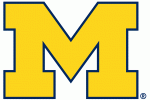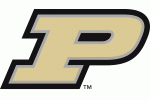- Joined:
- Aug 10, 2013
- Posts:
- 40,536
- Liked Posts:
- 37,784
- Location:
- Cumming
With their improbable ninth-inning comeback against the Giants on Tuesday night, the Cubs secured a slot in the National League Championship Series. As for their opponent -- i.e., the team that will stand between them their first World Series appearance since 1945 -- that depends upon the outcome of NLDS Game 5 between the Dodgers and Nationals on Thursday.
If you ask the Cubs whom they'd prefer to square off against in the NLCS, they'd surely and sensibly take the diplomatic route and say it doesn't matter and that both teams are worthy opponents, etc. The numbers, though, have a candor all their own, and the numbers show the Cubs should have a clear preference.
During the regular season, the Nationals were four games better than the Dodgers in the standings, and if you look at run differential then the Nationals played like a 97-win team while the Dodgers were more of a 90-win outfit. Look at the BaseRuns standings available at FanGraphs, which correct for some of the sequencing and clustering effects inherent in run differential, and you'll find that the Nats played at that level like a 98-win team, while the Dodgers were worthy of 91 victories. The Nationals during the regular season also played a tougher schedule in terms of opponents' average winning percentage. All of this is to say, Washington was a better team during the regular season.
However, it goes beyond that into matchup considerations. Specifically, it goes to left-handed pitching considerations in both directions.
At this point, let's take a look at how each of the three teams in question fared against right-handed pitching and left-handed pitching during the regular season. We'll do this by comparing each team's 2016 OPS against LHPs and RHPs, each team's strikeouts as a percentage of total plate appearances (K%) against LHPs and RHPs (so the lower the percentage, the better from the offensive team's standpoint), and each team's weighted runs created+ (wRC+) against LHPs and RHPs. We'll include NL ranks for 2016 in parentheses.
(Note: wRC+, available at FanGraphs.com, is an advanced metric that measures all phases of production at the plate and adjusts them for ballpark and league environments. The higher the wRC+, the better the hitter was. wRC+ is scaled so that a mark of 100 reflects a league-average hitter.)
First, versus lefties ...
Team OPS vs. LHPs K% vs. LHPs wRC+ vs. LHPs
Cubs .807 (2nd) 20.1 (14th) 116 (1st)
Dodgers .622 (15th) 22.4 (9th) 72 (15th)
Nationals .783 (3rd) 20.9 (13th) 105 (4th)
And now versus righties ...
Team OPS vs. RHPs K% vs. RHPs wRC+ vs. RHPs
Cubs .759 (4th) 21.5 (5th) 103 (3rd)
Dodgers .772 (3rd) 21.1 (7th) 109 (1st)
Nationals .742 (5th) 20.0 (12th) 95 (8th)
In general terms, the Cubs and Nationals are more effective against lefties than righties, while the Dodgers are vastly more effective against righties than lefties. In fact, per wRC+ -- a very good all-encompassing offensive measure that applies the necessary context -- the Dodgers are the best in the NL against right-handed pitching and the worst by a wide margin against left-handed pitching.
Presumably, the Cubs will give the Game 1 start to Jon Lester, the lone lefty in the rotation, which would put him in line for one more full-rest start assuming no sweep. So absent two Lester starts on short rest in Games 4 and 7, the Cubs' opponents would face a right-handed starting pitcher five times in a potential seven-game series.
On the other side of things, the Nationals would likely start a right-handed pitcher in the NLCS at least six out of seven times. Depending on whether Stephen Strasburg is available and whether he bumped Gio Gonzalez or Joe Ross from the playoff rotation (the former seems more likely), they could start a right-hander in every game of the NLCS. As you would expect from a 103-win team that scored 808 runs, the Cubs are adept at hitting the opposing pitcher no matter his handedness, but they're measurably better against lefties.
That brings us to the Dodgers' rotation. Ace Clayton Kershaw would be in line for two full-rest starts in the NLCS (again, assuming the series goes long enough), and the same goes for fellow lefty Rich Hill. Kenta Maeda will surely get a start or two, and the final spot figures to go to Julio Urias. Potentially that's five or six starts going to a left-hander in a seven-game series. That, of course, is of potential benefit to the Cubs, who, as noted, have been significantly better against left-handed pitching this season.
While the Dodgers are better against right-handers, and the Cubs will have three right-handers in the NLCS rotation, they have a lot of value concentrated in left-handed bats. On that point, the Cubs in the middle and late innings have three capable left-handed relievers in Aroldis Chapman, Mike Montgomery, and Travis Wood to blunt or force out of the game the likes of Corey Seager, Adrian Gonzalez, Joc Pederson, Josh Reddick, Chase Utley, and the switch-hitting Yasmani Grandal, who's historically been better when batting from the left side.
While the Nationals' injuries are noted, particularly the one to Wilson Ramos, they may not play as much of a role if they advance to the NLCS. Strasburg may be in line to be in the rotation, and Daniel Murphy certainly looked in top form while abusing Dodger pitching in the NLDS thus far. Combine the fact that the Nationals have been the better team in 2016 with the Dodgers' lefty-heavy rotation, and the Cubs should be hoping for an L.A. victory on Thursday.
http://www.cbssports.com/mlb/news/h...ld-root-for-in-dodgers-nationals-nlds-game-5/
If you ask the Cubs whom they'd prefer to square off against in the NLCS, they'd surely and sensibly take the diplomatic route and say it doesn't matter and that both teams are worthy opponents, etc. The numbers, though, have a candor all their own, and the numbers show the Cubs should have a clear preference.
During the regular season, the Nationals were four games better than the Dodgers in the standings, and if you look at run differential then the Nationals played like a 97-win team while the Dodgers were more of a 90-win outfit. Look at the BaseRuns standings available at FanGraphs, which correct for some of the sequencing and clustering effects inherent in run differential, and you'll find that the Nats played at that level like a 98-win team, while the Dodgers were worthy of 91 victories. The Nationals during the regular season also played a tougher schedule in terms of opponents' average winning percentage. All of this is to say, Washington was a better team during the regular season.
However, it goes beyond that into matchup considerations. Specifically, it goes to left-handed pitching considerations in both directions.
At this point, let's take a look at how each of the three teams in question fared against right-handed pitching and left-handed pitching during the regular season. We'll do this by comparing each team's 2016 OPS against LHPs and RHPs, each team's strikeouts as a percentage of total plate appearances (K%) against LHPs and RHPs (so the lower the percentage, the better from the offensive team's standpoint), and each team's weighted runs created+ (wRC+) against LHPs and RHPs. We'll include NL ranks for 2016 in parentheses.
(Note: wRC+, available at FanGraphs.com, is an advanced metric that measures all phases of production at the plate and adjusts them for ballpark and league environments. The higher the wRC+, the better the hitter was. wRC+ is scaled so that a mark of 100 reflects a league-average hitter.)
First, versus lefties ...
Team OPS vs. LHPs K% vs. LHPs wRC+ vs. LHPs
Cubs .807 (2nd) 20.1 (14th) 116 (1st)
Dodgers .622 (15th) 22.4 (9th) 72 (15th)
Nationals .783 (3rd) 20.9 (13th) 105 (4th)
And now versus righties ...
Team OPS vs. RHPs K% vs. RHPs wRC+ vs. RHPs
Cubs .759 (4th) 21.5 (5th) 103 (3rd)
Dodgers .772 (3rd) 21.1 (7th) 109 (1st)
Nationals .742 (5th) 20.0 (12th) 95 (8th)
In general terms, the Cubs and Nationals are more effective against lefties than righties, while the Dodgers are vastly more effective against righties than lefties. In fact, per wRC+ -- a very good all-encompassing offensive measure that applies the necessary context -- the Dodgers are the best in the NL against right-handed pitching and the worst by a wide margin against left-handed pitching.
Presumably, the Cubs will give the Game 1 start to Jon Lester, the lone lefty in the rotation, which would put him in line for one more full-rest start assuming no sweep. So absent two Lester starts on short rest in Games 4 and 7, the Cubs' opponents would face a right-handed starting pitcher five times in a potential seven-game series.
On the other side of things, the Nationals would likely start a right-handed pitcher in the NLCS at least six out of seven times. Depending on whether Stephen Strasburg is available and whether he bumped Gio Gonzalez or Joe Ross from the playoff rotation (the former seems more likely), they could start a right-hander in every game of the NLCS. As you would expect from a 103-win team that scored 808 runs, the Cubs are adept at hitting the opposing pitcher no matter his handedness, but they're measurably better against lefties.
That brings us to the Dodgers' rotation. Ace Clayton Kershaw would be in line for two full-rest starts in the NLCS (again, assuming the series goes long enough), and the same goes for fellow lefty Rich Hill. Kenta Maeda will surely get a start or two, and the final spot figures to go to Julio Urias. Potentially that's five or six starts going to a left-hander in a seven-game series. That, of course, is of potential benefit to the Cubs, who, as noted, have been significantly better against left-handed pitching this season.
While the Dodgers are better against right-handers, and the Cubs will have three right-handers in the NLCS rotation, they have a lot of value concentrated in left-handed bats. On that point, the Cubs in the middle and late innings have three capable left-handed relievers in Aroldis Chapman, Mike Montgomery, and Travis Wood to blunt or force out of the game the likes of Corey Seager, Adrian Gonzalez, Joc Pederson, Josh Reddick, Chase Utley, and the switch-hitting Yasmani Grandal, who's historically been better when batting from the left side.
While the Nationals' injuries are noted, particularly the one to Wilson Ramos, they may not play as much of a role if they advance to the NLCS. Strasburg may be in line to be in the rotation, and Daniel Murphy certainly looked in top form while abusing Dodger pitching in the NLDS thus far. Combine the fact that the Nationals have been the better team in 2016 with the Dodgers' lefty-heavy rotation, and the Cubs should be hoping for an L.A. victory on Thursday.
http://www.cbssports.com/mlb/news/h...ld-root-for-in-dodgers-nationals-nlds-game-5/









